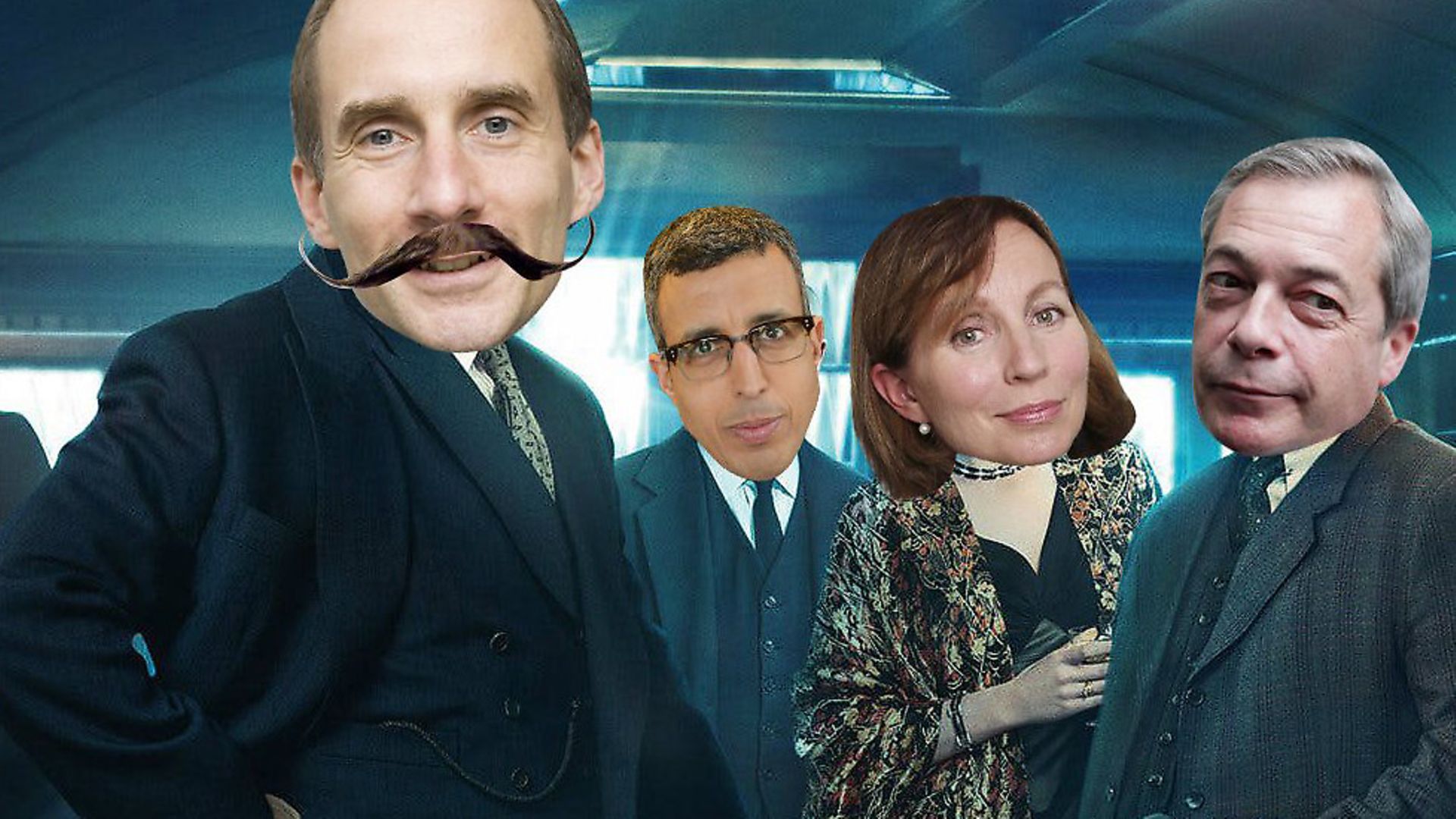
There seems to be something sinister about the BBC’s attitude to Brexit. Using his little grey cells, ANDREW ADONIS decides to investigate.
It was a dead body which first alerted me to the crime.
Last Wednesday evening I was glancing at the day’s news on the BBC website when this headline caught my attention: ‘UK NO LONGER SHACKLED TO A CORPSE.’
A corpse? Poirot twirled his moustaches and investigated. Eh bien, the deceased turned out to be none other than the venerable European Union, allegedly poisoned by the euro at just 61.
Her Majesty the Queen enslaved to a cadaver! Quelle horreur! In a deathly flash one saw why Mme May decreed that Brexit had to mean Brexit!
But all was not what it seemed. Careful inspection of the article beneath the headline revealed that Chancellor Merkel was not dead after all. Even more amazingly, having outwitted undertaker Juncker, she is now so fit and well that she’s entered the Great European Economic Race and is speeding past sluggish John Bull.
All this on the authority of no less than Kamal Ahmed, the economics editor of the great impartial BBC. Not some junior reporter but the grand fromage!
Worried about the impact on Mme May of seeing Frau Merkel in her rear mirror, when she had been reliably informed by the BBC that the German economy was six feet under, I was anxious that the false BBC headline be changed. So I tweeted Kamal and suggested that life replace death.
But no, he refused. He not only defended it but he claimed to have an informant who had seen the German dead on the streets of London. It was one Douglas Carswell, who in the dim distant past had likened the eurozone to a corpse to which the plucky Brits were shackled.
Now, M. Poirot was unable to discover any record of this Carswell as an economic luminary. But even I knew that he bears the name of an ex-UKIP MP who had ulterior motives for claiming that Frau Merkel had come to a grisly end.
I pointed this out robustly but still nothing happened. Eventually, after 24 hours of social media agitation, the headline was changed. But no apology or retraction.
The Case Of The UK Shackled To A Corpse typifies the way the EU is routinely and casually trashed in the media as a failing enterprise, including by our supposedly impartial state broadcaster which, we used to be told, has a ‘mission to explain’.
I might have left the crime there. But blow me down a day later and another public outrage. As I caught the end of Question Time, the BBC’s ‘flagship’ weekly political debate, David Dimbleby announced that the guests for the next programme will be headed by Nigel Farage.
Mr Farage is anything but a corpse. Bursting with joie de vivre, extremism and hatred for the EU, he is rarely off the airwaves – including the BBC’s, which was a notable factor in the Brexit referendum outcome 20 months ago.
M. Poirot kindly took on this new case and discovered it was to be Mr Farage’s 32nd appearance on Question Time, even though he is the former leader but four of a party at 2% cent in the polls.
In Mr Farage we are not talking about a Piers Morganish loudmouthed celebrity above the fray. Anti-EU bile is never off his lips at a time when Brexit remains a matter of bitterly divided opinions, with a referendum on Theresa May’s Brexit terms increasingly likely.
So the BBC ought to be taking especial care to maintain balance and impartiality. Every Minister on Question Time is a partisan for the government’s hard Brexit policy: an episode of Question Time also dominated by the 32nd Mr Farage is too much.
I therefore wrote to Sharon White, the head of Ofcom, the impartiality regulator for the BBC, asking her to review the invitation.
Then began a new saga, as yet uncompleted. Ms White replied that, alas, she could not consider my complaint. Under an agreement with the BBC, under the terms of its Charter, the broadcaster’s own complaints procedures must be exhausted before Ofcom will even consider an issue. But even if a complaint is urgent, the BBC says it takes up to ten days to reply.
So it looks as Mr Farage will have sat at David Dimbleby’s right hand and held sway over an hour of BBC prime time before one can even activate the regulatory machinery which is supposed to ensure that serious breaches of BBC impartiality do not occur.
M. Poirot smiled when I told him. He said it reminded him of a case he once undertook on the Orient Express. Lots of people had committed a murder and none was individually responsible. He suggested I call my book about it The Brexit Broadcasting Corporation.









